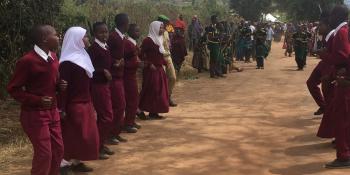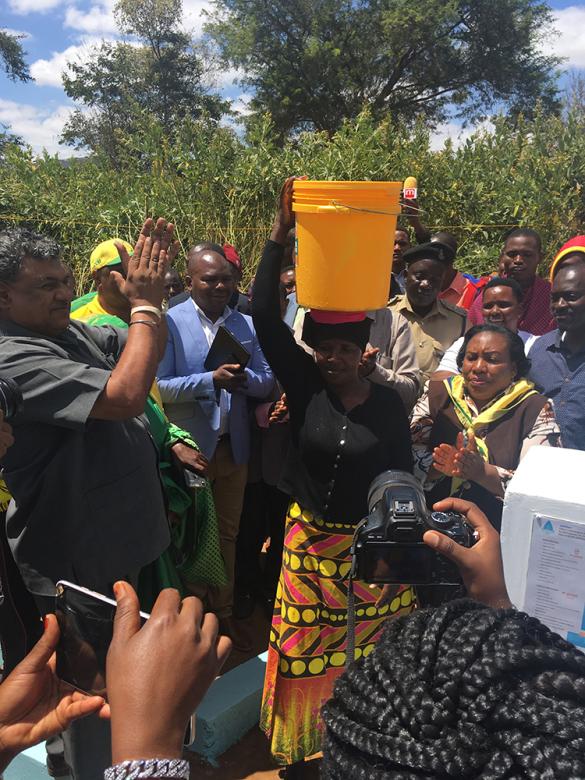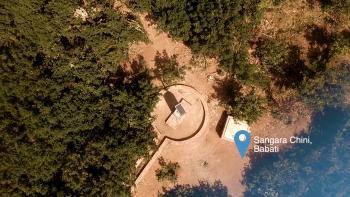
Expanding water access in Tanzania
Sangara Village
Can you imagine that there are only eight hand water pumps in your district and you need to fetch fresh water for cleaning and cooking because there is no water tap in your house? Can you imagine walking five kilometers across a hilly village to get to the nearest water point only to frequently wait in large queues before carrying a full bucket on your head all the way back home?
This used to be the everyday reality for the Sangara village residents in Tanzania until they decided to pioneer a new solution that would allow them to expand their water network. Habitat for Humanity developed a project implemented by WaterAid Tanzania in cooperation with a microfinance institution UTT-MFI, eWATERpay and Babati District Council to bring water to Sangara residents.
Water in pumps is replenished from a water tank by gravity system. The water points pump water using solar technology.
New technologies and financing schemes
Before, access to water in Sangara was less than 20%. Out of eight hand pumps used by 2000 people, only six were working and improperly at that. Frequently, the community members had to contribute to fixing them, which left them without money for expanding the water network.
To cover both the maintenance and construction of new modern water points pumped by solar technology, the project combined a prepay system, a grant and a loan that residents can afford. Community members pay 30 Tanzanian shillings per 20-liter bucket (less than 1 USD).
The loan model, which was proposed by Habitat for Humanity, is based on a revolving fund mechanism, whereby the revenue collected by people purchasing water is reinvested in the same community. The community can then decide to invest this fund into improving its housing conditions or other infrastructure elements.
The key project solutions include:
- The solar pumping system
- Prepaid meters via eWATERpay Ltd
- A loan model to the village via the microfinance company UTT

Water point opening ceremony in Sangara on 13 August 2019.
